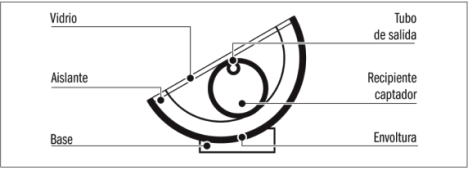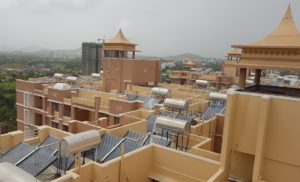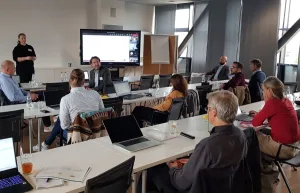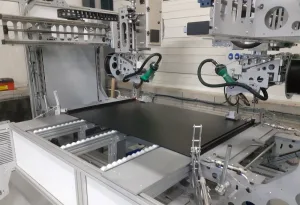
Cuba: Solar Water Heating Could Reduce Pressure on Power Grid
 Luis Hilario Bérriz Pérez, President of the Cuban Society for the Promotion of Renewable Energy Sources (CUBASOLAR) has recently pointed out that 89 % of the island’s population had access to hot water, 80 % of them by using electric heaters mainly during peak hours, as Cuban radio Rebelde has cited the renewables expert. Hence, Bérriz Pérez wants to start using existing technology – namely solar water heaters produced in Cuba – on a major scale in order to take some pressure off the Cuban electricity grid. The figure shows the model of a solar water heater made in Cuba; it was taken from a guideline published by Bérriz Pérez in 2008.
Luis Hilario Bérriz Pérez, President of the Cuban Society for the Promotion of Renewable Energy Sources (CUBASOLAR) has recently pointed out that 89 % of the island’s population had access to hot water, 80 % of them by using electric heaters mainly during peak hours, as Cuban radio Rebelde has cited the renewables expert. Hence, Bérriz Pérez wants to start using existing technology – namely solar water heaters produced in Cuba – on a major scale in order to take some pressure off the Cuban electricity grid. The figure shows the model of a solar water heater made in Cuba; it was taken from a guideline published by Bérriz Pérez in 2008.Electricity is of major concern to the Cuban government, as production is based almost exclusively on fossil fuels, which makes the country dependent on imports from Venezuela or even the USA. According to Bérriz Pérez and a study published by the German Regional Chamber of Commerce for Central America and the Caribbean in January 2015, renewables account for only 4 % of the electricity generated in the country. It is a meagre result considering Cuba’s renewable resources and their share achieved by other countries in the region. The 4-page fact sheet, which was written to give German companies an overview of the Cuban renewables market, emphasised that there might be opportunities to sell solar cooling and process heat technologies as well as heating and cooling technologies in general (see the attached PDF).
Big potential, but no explicit target for solar water heater deployment
According to an article published by Bérriz Pérez on cubasolar.cu, irradiation is at 5 kWh/m² per day – enough to encourage Cubans to use SWH technology. He believes that compact water heaters produced in Cuba would be most likely to cover market demand. Currently, Cuba produces a model that heats up to 250 litres per day at a temperature of 40°C.
During a presentation on the opportunities for renewable energy consumption in the Cuban industry, which was held in Germany in September 2013, Jorge L Suárez, engineer at SIME, reported that there was one factory for flat plate collectors in Cuba, producing 1.1 m² and a 2.4 m² systems for residential use and a 2,9m² model for industrial applications. According to Suárez, the factory had an output of 25,000 collectors annually, which could be increased to 50,000 units over three shifts. Suárez also stated in 2013 that Cuba had a total of 21,051 solar heating systems installed – without indicating the total collector area.
In June 2015, Environment & Energy Publishing (E&E; eenews.net) wrote that only 10,500 solar water heaters were actually installed, mainly in the tourism sector. This report was published after an international renewable energy conference took place in Havana in late May 2015.
But neither figure has so far been confirmed by Cuban authorities. The E&E article underlined the big opportunities for the renewable energy industry, as the Cuban government tries to attract foreign imports and end the country’s isolation. Energy efficiency has been part of Cuban governments’ political agenda for many years. In 2005, Castro proclaimed the “Energy Revolution,” banning conventional light bulbs and ordering to replace inefficient fridges, air-conditioning and water pumps. The electricity price system was changed to make energy efficiency more appealing to consumers. But the real change is yet to come, and so the government is thinking about implementing additional energy efficiency measures in the residential and industrial sector – most of them focusing on a more efficient production of electricity. And although Cuba has set ambitious goals for the implementation of more PV, wind and biomass generation of electricity, there does not seem to be any official target for an increased deployment of solar water heating. It might be an implicit one, however, as Cuba is promoting energy management systems, which might encourage companies to set up more collectors.
This news was written by Vanessa Kriele, a German freelance journalist specialised in renewable energies and world economics.
Websites of companies and institutions mentioned in the article:
Cubasolar: http://www.cubasolar.cu
SIME: http://www.sime.cu


